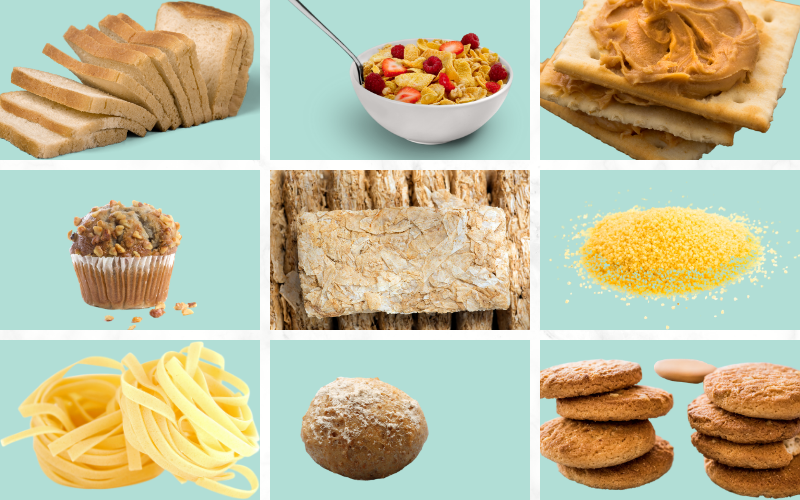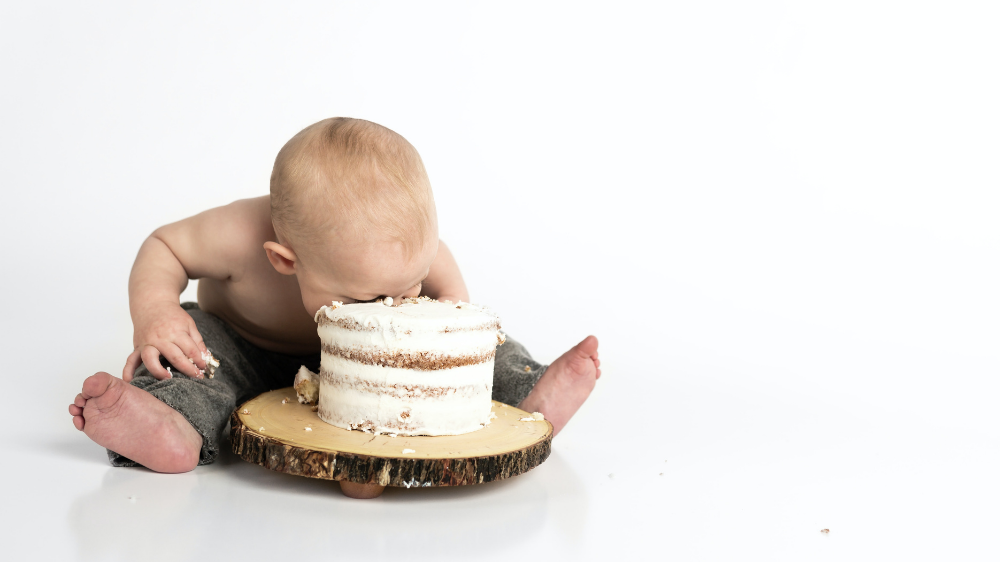A blood antibody test, ordered by your GP, is the first step in working out whether or not you have coeliac disease. If this is positive, you’ll be referred to a gastroenterologist, who will take biopsies from your small intestine to look at under a microscope in order to confirm the diagnosis. But, there’s one catch…
You can only be tested for coeliac disease if you’re eating gluten.
If you’ve been on a gluten-free or low-gluten diet for several weeks or more, it isn’t possible to accurately test whether or not you have coeliac disease. You results may come back ‘negative’ simply because you were not eating gluten (or enough gluten) at the time of testing. This is known as a ‘false negative’ result.
How much gluten do I need to eat to be tested?
If you’re already on a gluten-free diet and want to be tested for coeliac disease, you’ll need to complete a gluten challenge* for six to 12 weeks. For adults, this means eating 8-10g of gluten per day; for children this means eating 4-5g of gluten per day, depending on their age.
Each of the foods below contain 2-2.5g of gluten. This means that adults need to choose four serves of these per day, and children two:
- 1 slice wheat-based bread
- ½ large bread roll
- ½ English muffin
- ½ cup wheat-based cereal
- ½ cup cooked wheat-based pasta
- 1/3 cup cooked couscous
1 Weet-Bix
- 2 small sweet biscuits
- 4-5 gluten-containing crispbreads (e.g. Vita-Weat, Salada)
- 8-10 gluten-containing crackers (e.g. Water Crackers).

Oats are an unsuitable food for a gluten challenge, because not all coeliacs react to the protein in oats in the same way they do to gluten from wheat, rye and barley.
* Seek advice if your children are younger than four (the antibody blood test is more accurate from that age) or going through puberty1.
Nervous about challenging gluten?
If you’re concerned about reintroducing gluten to your diet, consider the following:
- Start slowly and build up to the recommended amount of gluten over a few weeks, then continue for six to 12 weeks.
- Choose traditionally made white wheat, wholemeal wheat or spelt sourdough bread over standard bread, as it can be easier to digest if you have irritable bowel syndrome, FODMAP sensitivities or are a coeliac with overlapping digestive issues.
- If some of the above foods make you especially symptomatic, avoid them and eat other gluten-containing foods to increase your intake to the required amount.
- Consider making an appointment with me here to discuss how to strategically re-introduce gluten in a way that can gather information to guide you on next steps if you don’t end up testing positive for coeliac disease (and ensure you’re able to enjoy the least restrictive diet possible).
- If you believe eating gluten will make you too ill to function, consider requesting a coeliac gene test (a blood test ordered by your GP) prior to the gluten challenge, as this may help rule in/out the possibility that you will develop coeliac disease.
Please note: I have recommended six to 12 weeks for this challenge2. Others recommend four to eight or six to eight weeks. There is a lack of evidence and general consensus in this area, possibly because a lot of variation between people has been shown. It is clear, though, that ‘as long as possible’ is the target when carrying out a gluten challenge for coeliac testing. Your GP or specialist may agree to an interim coeliac blood antibody test at the eight-week mark.
Need personalised nutrition advice?
Elly McKenzie is a New Zealand-based nutritionist specialising in practical, evidence-based support for gut health, coeliac disease, irritable bowel syndrome, food allergies/intolerances, and general nutrition (including healthy eating, high cholesterol/blood pressure and pre-diabetes).
Consultations are available in person at her Mount Maunganui clinic (Tauranga) or across Aotearoa via secure Telehealth. Book a consultation or get in touch to learn more.
1Al-Toma A, Volta U, Auricchio R, et al. European Society for the Study of Coeliac Disease (ESsCD) guideline for coeliac disease and other gluten-related disorders. United European Gastroenterol J. 2019;7(5):583-613. doi:10.1177/2050640619844125. Read more here.
2Bruins MJ. The clinical response to gluten challenge: a review of the literature. Nutrients. 2013;5(11):4614-4641. Published 2013 Nov 19. doi:10.3390/nu5114614. Read more here.


2 thoughts on “The gluten challenge”
Comments are closed.